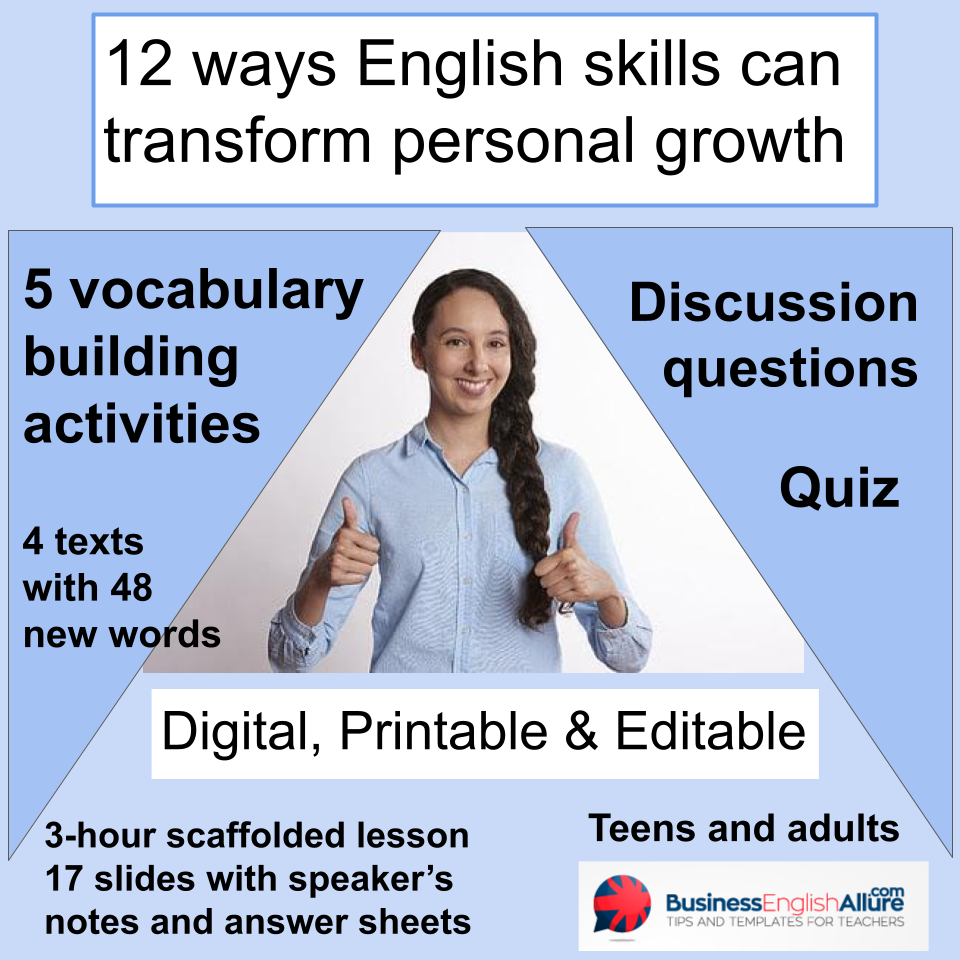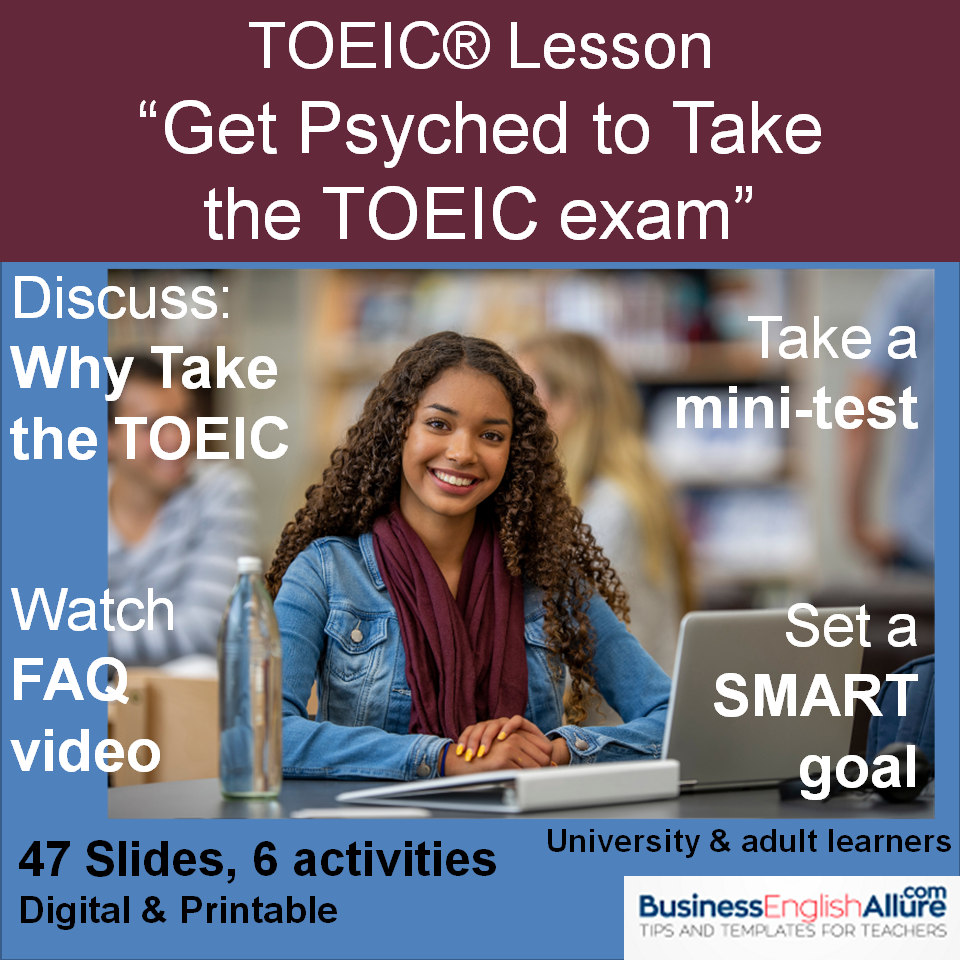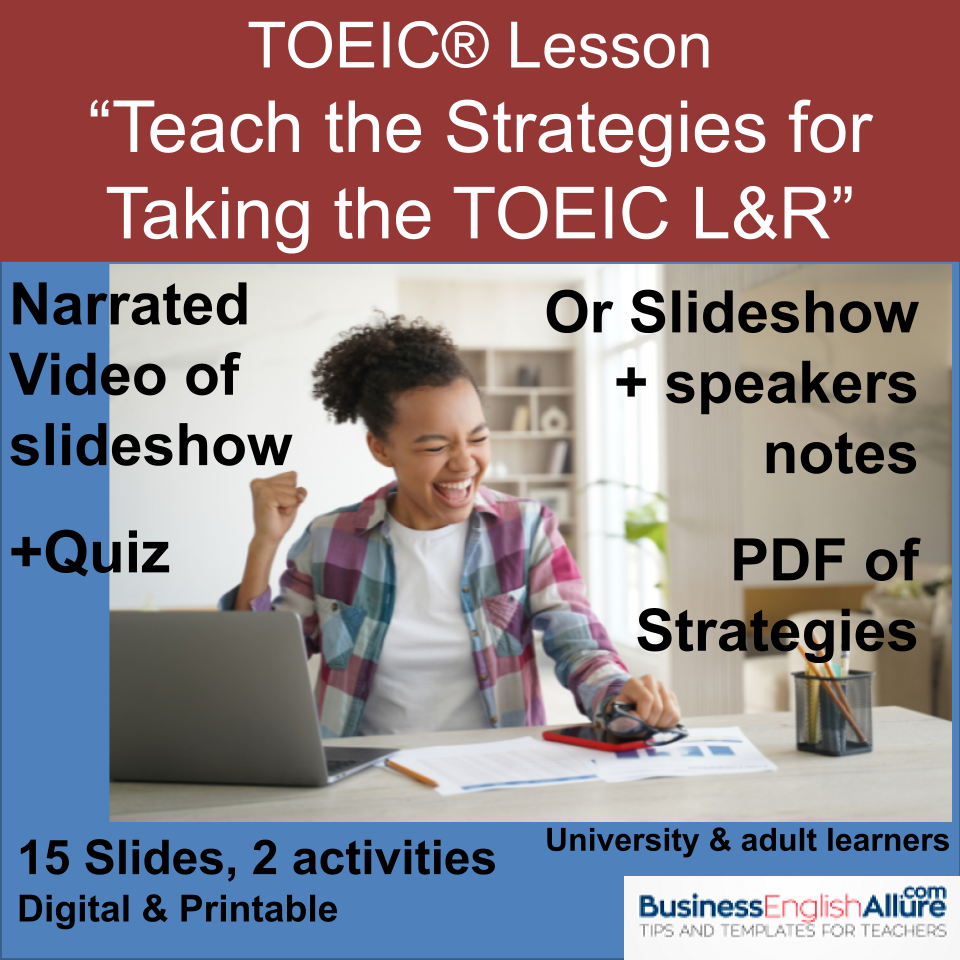TOEIC Experts Agree Vocabulary is Vital
As a TOEIC teacher, what do you think is more important teaching TOEIC grammar or teaching TOEIC vocabulary? I’m sure you have an opinion on this.
This question has been troubling me for quite some time especially when I was planning content for larger classes. One-on-one TOEIC training was easy since I could pinpoint the specific weaknesses of an individual student and personalize the course for him or her. I always got results.
But over the years, with those large classes, I found myself switching content from course to course, trying to find that perfect balance between grammar review and vocabulary building which would bring the desired results for at least most of the class.
I asked myself, “Was I focusing too much on grammar games to fill up the 50-hour course? Was I doing a disservice to the students who were desperate to boost their score by neglecting business vocabulary?”
So I finally got fed up questioning myself and did my own research and listened to the advice of TOEIC experts who confirmed my assumptions and convinced me that vocabulary is vital.
My discoveries
I discovered that in all the 200 questions on the complete two-hour exam, 76% of those questions required TOEIC vocabulary to answer the question correctly and only 24% of those questions required knowledge of grammar. So that’s 152 questions on vocabulary and only 48 questions that require grammar skills to answer the question correctly.
Is that surprising to you? Maybe not. It did confirm my suspicions because I knew that the only real grammar questions, pure grammar questions, were in Parts V and VI of the reading section.
So why do so many online training courses dodge TOEIC vocabulary?
I’m speaking, in particular, of the official TOEIC training course offered by the ETS website. I did the full course thanks to a coupon I found and studied all three modules: high beginner, intermediate, and advanced.

I saw, surprisingly, that one-half of the lessons were devoted to grammar review including a full review of verb tenses. So I thought ETS must consider grammar to be equally as important as vocabulary. So there must be grammar questions in other parts of the test and not just in Parts V and VI.
My research began with Practice Tests

I picked up this book that contains two updated practice tests from ETS. These are official practice tests approved by ETS. This book happens to be in French which is not a problem for me but it was basically the only practice tests I could find that were official and up-to-date.
I decided to study all 200 questions. And to determine if I needed grammar knowledge to answer the question correctly or if I needed business vocabulary. Sometimes I noticed that I needed a little of both. So I kept score meticulously.
How to identify a grammar question
You’re probably wondering what I considered a grammar question. Those questions would have, in the four answer choices, word families or adjectives and adverbs choices. Sometimes there would be a question of verb tense with the same verb tense in the question and in the answer choices. Or maybe there was a choice of prepositions or phrasal verbs. So that’s what I considered grammar.
Where are the grammar questions found
There are two parts to the TOEIC a Listening Section Parts I to IV and a Reading Section Parts V to VII. In the 100 questions in the listening section, I only found 8 questions that tested grammar and those were included in Part II. That’s the section where you have to listen to a question or a statement and then choose the best response.
In the reading section, I only found 39 questions that tested grammar and those were in Parts V and VI: incomplete sentences and incomplete texts. Just as I suspected.
I wanted to show you these two examples of how I decided if it was a grammar or vocabulary question. These two examples are from Part II: questions and responses. They are listening questions.

In the first example “Why did you come to the office early today?” answer choice A) is correct. It gives the reason “because” to the question “Why did you come”. I consider that grammar.
Both the question and the response in answer choice A) are in simple past. So the same verb tense is found in the question and the response. Verb tense recognition is grammar. Answer choice B) is in present simple so that’s not working out and answer choice C) “I’m sorry but I can’t” we did not make a request in the question. So for me, this was a “pure” grammar question since the vocabulary would not pose a problem for most test-takers.

In the second example, I consider this to be half grammar and half vocabulary. For the grammar “How will I know IF the base ballgame is canceled?” answer choice A) “You could look on the team’s website.” offers a suggestion to the question, so I consider it grammar. B and C just don’t answer the question.
The vocabulary is a little bit rich from American sports: baseball game, canceled, team’s website, so I gave it half grammar half vocabulary.
Two experts agree that teaching TOEIC vocabulary is vital.

The first expert is Grant Trew. He’s the author of the course book “Tactics for TOEIC” that is published by Oxford University Press. They did an interview to ask him “What’s the biggest challenge facing TOEIC test takers when they’re preparing for the test?”
“Vocabulary is the main issue that causes problems for low-level students on the TOEIC. They just don’t know enough words. Listening skills and reading skills, all that stuff, is important, of course. But if they can’t understand keywords in the question. If they can’t understand the meaning, then they’re just not getting anywhere from the get-go. So that’s the single biggest problem for sure.” Watch the full interview.
The second expert agrees too

Our second expert is James Karaway. He’s an experienced TOEIC teacher and he’s answering a question from a new TOEIC teacher in Englishforums.com. He writes eloquently.
So his first word of advice is “Throughout your preparation for listening focus, focus, focus on actively building the students’ vocabulary. Actively pester your students to keep TOEIC vocabulary and lexis journals. I’d say vocabulary skills, specifically knowing the business context words and phrases tested on the exam is about 50% of beating the TOEIC by raising a candidate’s score 200 points or so. 25% is specific test prep skills and the last 25% is what is generally called language proficiency or competency skills”. For me, that means grammar review.
Here is James Karaway’s last word of advice “Vocabulary, vocabulary, vocabulary. Stop and drill, he suggests, make up word sheets, review, translate. Get the vocabulary working until the students hate you.”
He says “It will make you feel that you are betraying your honorable profession of a language trainer.” But that’s TOEIC training, as he says “We just have to get the job done.”
I hope that you’re convinced now that your TOEIC training course should be 75% vocabulary and 25% grammar. I’ve also got two tips here that I think are important.
Two tips for designing a TOEIC course
TIP 1: Make sure that your vocabulary games are oral. When the student knows how to pronounce a new word he will recognize it when he hears it.
TIP 2: All of your grammar games must have a TOEIC theme so the students will pick up vocabulary while they are learning grammar.
List of TOEIC topics

I found this list of TOEIC topics inside the “Examinee Handbook for Taking the TOEIC Listening and Reading Test” pdf from the ETS TOEIC website. You can download the handbook here. Scroll down to page 3 or read the whole booklet. There are lots of tips for students and teachers alike.
Any article, video, listening exercise you use in TOEIC class should correspond to one or more of these themes. It’s less fun, I know, to have to stick to a list of topics, but deviating from this list to watch a video on lions in Africa would be a waste of time.
When looking online for new content for class, I’d suggest typing in the Google search bar the name of the topic followed by ESL. This will search for articles or videos designed for learners of English. Like this below.

[stextbox id=”download”]Download the pdf of this article[/stextbox]
Be sure to review new vocabulary with students
This blog post talks about the importance of reviewing vocabulary in a timely manner. Here’s a simple game you can create and use just after your lesson for the first review. https://www.businessenglishallure.com/game-reviewing-english-vocabulary/
Download my ready-made TOEIC games
Here’s a link to a list of all my games such as linking words, prepositions, phrasal verbs all created with these TOEIC business vocabulary topics.
Subscribe and leave a comment
Why not subscribe to my newsletter if you’d like to receive notices when a new TOEIC teaching video/blog comes out?
Leave a comment: I’d love to hear your opinion about what you consider to be a good balance between TOEIC vocabulary and grammar lessons.






 Our new vocabulary lesson focuses on personal development and growth, two topics that resonate with learners of all ages.
Our new vocabulary lesson focuses on personal development and growth, two topics that resonate with learners of all ages.  By the end of the lesson, your students will be motivated to reach new heights.
By the end of the lesson, your students will be motivated to reach new heights. Check out the 3-hour lesson on TeachersPayTeachers $5
Check out the 3-hour lesson on TeachersPayTeachers $5 






1 Response
[…] experts agree that a large vocabulary is essential to success. Read my blog post https://www.businessenglishallure.com/experts-agree-teaching-toeic-vocabulary-is-vital/ if you need convincing to change your mindset […]